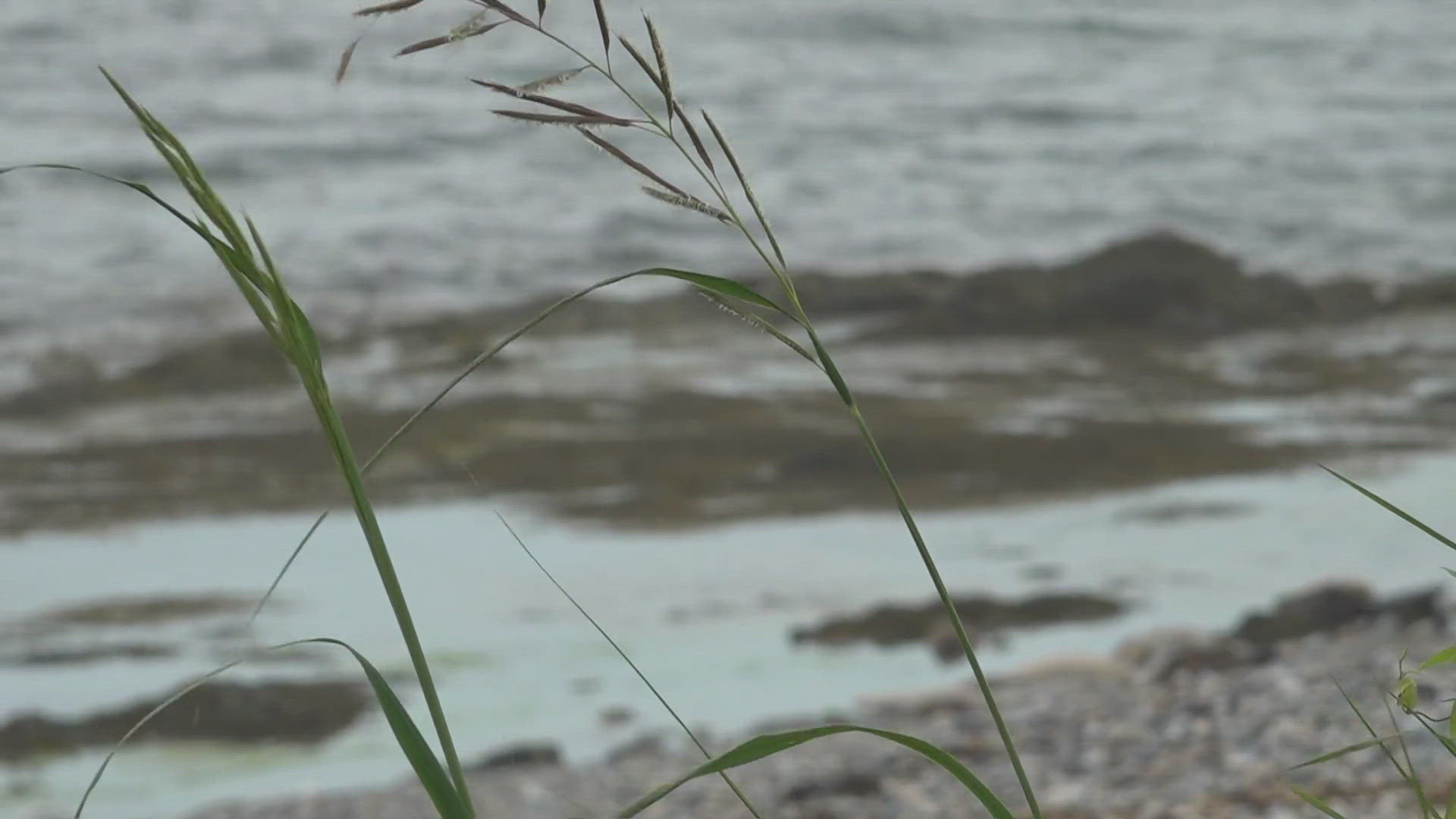PORTLAND, Maine — A sign prohibiting hunting, fishing, trapping, and trespassing for any reason was planted in the sand on the western end of Crescent Beach State Park in Cape Elizabeth, and many community members feel that the sign is illegal.
There is continued confusion about which parts of Maine's coastline are considered private property and which areas are safe to use when beach waters adjoin private property.
Mark Robinson, who regularly uses various coastlines in the state, said one thing that is clear is that fishing in the intertidal zone is legal.
"It's an illegal sign is the first thing I thought," Robinson said.
Robinson said he saw the sign on Facebook sometime last week. By Tuesday, the paper sign was ripped away from its wooden post, and small corners of the sign and the fencing behind it were all that was left.
"If you take a look at that sign and you look at the bottom, it's clear that water has washed over that section of the beach," Robinson said. "And in Maine, it is legal. Fishing, fowling, and navigation is legal on all beaches and all intertidal lands."
Fishing between the low tide and high tide marks on coastlines has always been fair game, Robinson said. He said he believes the sign and the fencing were intentionally put up to do one thing.
"If you put up a sign, you put up a fence. It's meant for one thing only and that's to intimidate people," he said.
Robinson explained this is not the first time he has seen signs like the one planted in the sand at Crescent Beach posted on coastlines that are supposed to be accessible to the public for fishing and other activities.
There is currently a Maine Supreme Court Case pushing for greater public access to intertidal land on Moody Beach.
Cape Elizabeth's assistant code enforcement officer Jake Deslandes said the sign was brought to his attention on Monday. Although the town doesn't interpret private property lines, Deslandes said fishing in intertidal zones is "traditionally" allowed.
"Things like this are usually just a concerned property owner that wants to protect their land," Deslandes said. "Just a matter that needs to be cleared up again with some research and looking into previous cases of similar interest."
Deslandes explained that property line disputes are civil matters and can easily be resolved if a property owner hires an independent land surveyor to complete a full boundary survey.
According to state law, even if the fencing and the sign were placed on privately-owned property, fishing is still allowed in the intertidal zone from the low to the high tide of the coastline area.
The Sprague Corporation leases 100 acres of the beach to the state for public use, and the rest is considered private property. The president of the corporation Claudia Richards said they comply with state law, explaining that they have always provided public access to the coastlines.
Richards said she too is aware that fishing is allowed in intertidal zones but added that she has not seen the sign.
She could not confirm whether the sign belongs to Sprague Corporation, and she said they would need to have a property manager from the corporation go out to the location and observe the area.
Robinson said if Sprague Corporation owns the land, he is sure they know the law, which he said he believes only reinforces his opinion that the sign and the fencing are just intimidation tactics that he knows all too well.
"Just imagine. You'll have beachgoers walking towards that area. They'll come to the fence, and they'll say, 'Well, we got to turn around.' They don't know the law," Robinson said. "So, mission accomplished for that sign. You've intimidated people. They turn around, and they never know that they could have walked on that land."
Regardless of who put up the sign and the fencing, community members visiting the beach said they feel that the public should have access to the ocean.

